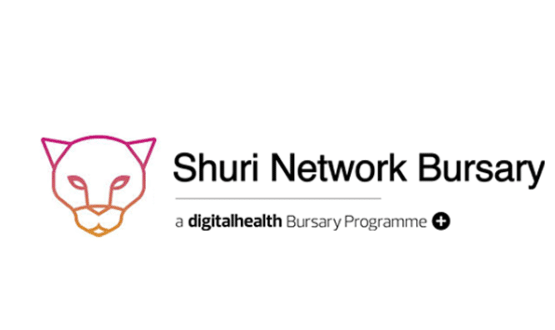Network for BME women in digital health launched at Summer Schools
- 18 July 2019

A new network to support and encourage women of black and minority ethnic (BME) backgrounds in digital health roles has been launched.
The Shuri Network, officially launched at Digital Health Summer Schools on July 18, is the first network for BME women in health tech and digital health.
Looking at NHS boards and high-level jobs like CCIOs, CIOs and CNIOs, it’s a field largely dominated by men – that’s something the Shuri Network hopes to change by providing support, expertise and opportunities to learn to its members.
Dr Shera Chok founded the network after attending Summer Schools in 2018 and realising there were very few women of BME background working in the audience.
Now, a year on, the network has attracted more than 60 members and is still growing.
Introducing a panel for the network, Dr Chok reminded the audience in Leeds that 77% of the NHS workforce is female and 20% are of BME background, yet there are only four female BME CCIOs, CIOs and CNIOs in the country.
“We know it can be really lonely when you’re in a minority, whether that’s because of your gender, your age, your race, your sexual orientation, and we know that networks can make a big difference,” she said.
“We want to help women feel that they are able to apply for, and succeed, in roles in informatics in digital health. We want them, in turn, to act as champions in your trust and organisations to inspire the next generation of digital leaders.
“If we can do it, so can a lot of other women.”
Named after Shuri, the Black Panther character and brains behind Wakanda technological advancement, the network aims to develop a more inclusive leadership within the NHS that reflects the diversity of the workforce and support career progression of BME women.
Sonia Patel, joint CIO at London North West Healthcare NHS Trust and The Hillingdon Hospitals Foundation Trust; Prof Laura Serrant of Manchester Metropolitan University and chair of the chief nursing officer – England’s BME advisory group; Dr Ijeoma Azodo, director at NHS Digital and a surgeon, Heather Caudle, director of nursing, leadership and quality at NHSE and NHSI; and Sarah Amani senior programme manager early intervention in psychosis programme for South of England, shared their experiences of working as a BME woman in the industry.
Sonia Patel spoke of hitting a “glass ceiling” when she got to a certain point in her career and the need to change that for future generations.
“Socially engineering diversity is not the right way about it, it’s really about a culture change,” she said.
“If there’s one thing that I want leaders to take away from today it’s to build a foundation of acceptance, that’s really important.
“Diversity will bring a different set of perspectives and that can only encourage greater creativity and innovation.”
Prof Laura Serrant said educating people about different cultures and backgrounds is not only a matter of inclusion, it’s a matter of safety.
“Using a diverse approach to finding solutions and seeking the questions on how to improve health is an issue of political imperative.
“Making a decision to have a diverse leadership is always politically the right choice.
“We have to do this because I am fearful of what will happen if we don’t.”
Dr Ijeoma Azodo reminded the audience of the importance of having a diverse team, whether on the ground or in leadership roles, to expand knowledge through the organisation.
“Everybody on the team has a unique value that we want to bring out,” she said.
“You don’t have to have all the answers but it has to be something on your mind – are we missing people?”
The Shuri Network is open for anyone to join, you can find out more on their website here.
Prior to the launch, delegates at this year’s Summer Schools also heard international keynotes from Nick Adkins, John Halamka and Margunn Aenestad.





3 Comments
Echoing my colleague Paul, I was deeply honoured to share in the stories told and the launch of this network. The stories were amazing and really touched at what the Shuri Network is. It was easily the heart of the whole Summer School experience this year.
I am proud to say I have joined the network, and will be encouraging others to do so.
And of course; Wakanda Forever!
Paul – thank you so much for your comment. We were stunned by the strength of the response to the our panel session and hope that it will lead to change in the NHS.
Do join our network – we plan to hold future events in the autumn : http://www.shurinetwork.com
This was the most inspiring set of presentations that I have ever had the pleasure to “see”. Your stories were staggering, profound and deeply deeply important. Thank you. Wakanda forever.
Comments are closed.